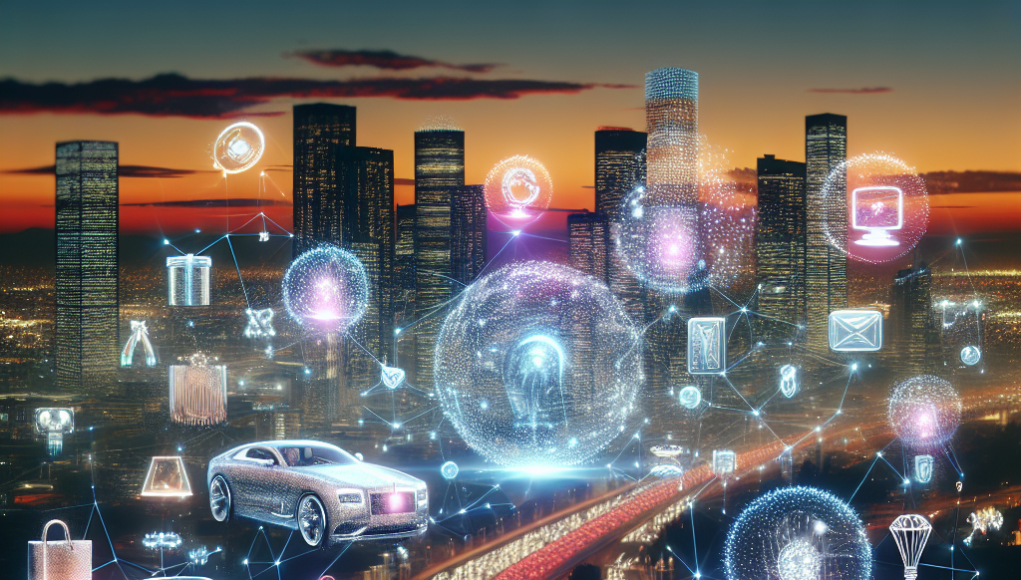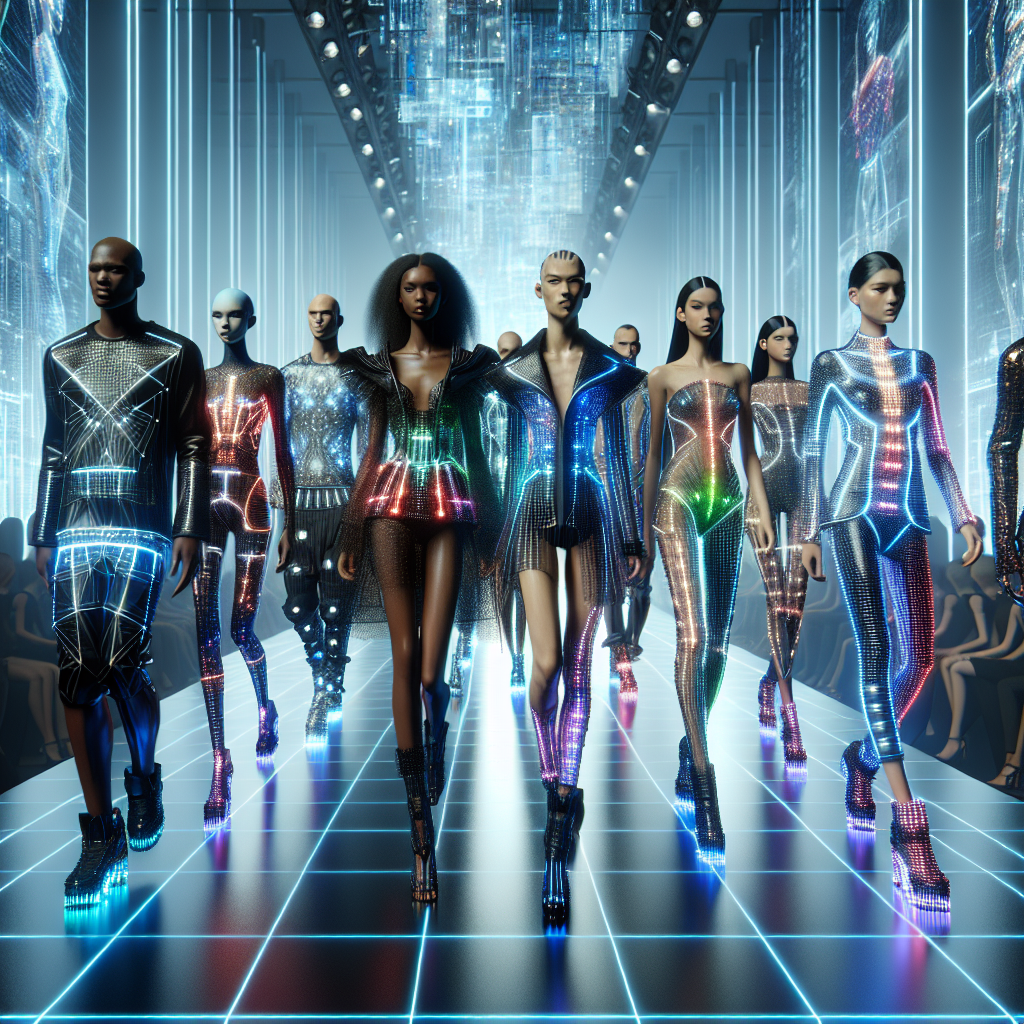Exploring the Future of Digital Luxury Experiences
The digital landscape has dramatically transformed the luxury industry, ushering in a new era where opulence is no longer confined to physical spaces. As technology continues to evolve, so does the concept of luxury, reshaping consumer expectations and experiences. This article delves into how digital innovations are redefining luxury, exploring the roles of immersive technologies and artificial intelligence in crafting exclusive experiences.
The Evolution of Luxury in the Digital Age
The luxury industry has always been synonymous with exclusivity, craftsmanship, and status. Traditionally, luxury was experienced through tangible products and face-to-face interactions. However, the digital age has brought about significant changes, challenging traditional notions of luxury. Today, luxury brands are leveraging digital platforms to reach and engage with a broader audience, offering personalized experiences that were once unimaginable.
Digital transformation has opened up new avenues for luxury brands to tell their stories and create deeper connections with consumers. Through social media, brands can showcase their heritage and craftsmanship, while influencers and digital ambassadors help amplify their message to a global audience. This shift has democratized luxury, making it more accessible while maintaining its allure.
E-commerce has also played a pivotal role in the evolution of digital luxury. High-end brands that once hesitated to embrace online sales now offer seamless shopping experiences that reflect their brand values. Websites and apps are designed to provide a sense of exclusivity and sophistication, with virtual try-ons and personalized recommendations enhancing the shopping journey.
Moreover, the rise of digital luxury is also evident in the growing importance of sustainability and ethical practices. Consumers are increasingly demanding transparency and accountability from luxury brands, and digital platforms allow for better communication and engagement in these areas. Brands can share their sustainability initiatives and engage with consumers on a more personal level, building trust and loyalty.
The evolution of luxury in the digital age is also characterized by the blending of physical and digital experiences. Luxury brands are investing in creating immersive environments that merge the tactile with the virtual, offering consumers a holistic experience that transcends traditional boundaries. This fusion of the physical and digital is paving the way for a new era of luxury that is both experiential and aspirational.
As the digital landscape continues to evolve, luxury brands must adapt and innovate to stay relevant. Embracing digital transformation is no longer optional but essential for survival in a competitive market. By leveraging technology, luxury brands can create unique and unforgettable experiences that resonate with the modern consumer, ensuring their continued success in the digital age.
Immersive Technologies Redefining Opulence
Immersive technologies, such as virtual reality (VR) and augmented reality (AR), are revolutionizing the luxury industry by offering new ways to experience opulence. These technologies provide consumers with interactive and engaging experiences that transcend traditional boundaries, allowing them to explore luxury in unprecedented ways.
Virtual reality offers a unique opportunity for luxury brands to create immersive environments where consumers can experience their products and services in a highly realistic setting. For example, VR can transport consumers to a virtual showroom, where they can explore a collection of high-end fashion or luxury automobiles without leaving their homes. This not only enhances the shopping experience but also allows brands to showcase their offerings in a more dynamic and engaging manner.
Similarly, augmented reality is redefining opulence by overlaying digital content onto the real world. AR applications allow consumers to visualize luxury products in their own environment, whether it’s trying on a virtual watch or placing a digital piece of furniture in their living room. This level of interactivity not only enhances the consumer experience but also provides a sense of exclusivity and personalization.
Beyond product visualization, immersive technologies are also being used to create unique brand experiences. Luxury brands are leveraging VR and AR to host virtual events, fashion shows, and exclusive previews, allowing consumers to participate from anywhere in the world. These digital experiences not only build excitement and anticipation but also foster a sense of belonging and community among luxury enthusiasts.
The integration of immersive technologies into the luxury industry is also driving innovation in product design and development. Designers can use VR to experiment with new materials and concepts, while AR can assist in visualizing prototypes and making real-time adjustments. This not only accelerates the design process but also allows for greater creativity and experimentation.
As immersive technologies continue to evolve, they will play an increasingly important role in redefining opulence in the digital age. By embracing these technologies, luxury brands can create unique and memorable experiences that resonate with consumers, reinforcing their position as leaders in innovation and exclusivity.
The Role of AI in Curating Exclusive Experiences
Artificial intelligence (AI) is transforming the luxury industry by enabling brands to curate personalized and exclusive experiences for their consumers. Through data analysis and machine learning, AI can provide insights into consumer preferences and behavior, allowing brands to tailor their offerings to meet individual needs.
One of the key applications of AI in the luxury industry is personalization. By analyzing consumer data, AI can recommend products and services that align with individual tastes and preferences. This level of personalization not only enhances the consumer experience but also fosters a sense of exclusivity and uniqueness.
AI is also being used to enhance customer service in the luxury industry. Chatbots and virtual assistants powered by AI can provide instant support and assistance, answering queries and providing recommendations in real-time. This not only improves the efficiency of customer service but also ensures a seamless and personalized experience for consumers.
Moreover, AI is playing a crucial role in optimizing supply chain management and inventory control for luxury brands. By analyzing data and predicting demand, AI can help brands manage their inventory more effectively, ensuring that the right products are available at the right time. This not only reduces waste but also enhances the overall consumer experience by ensuring product availability.
In addition to enhancing personalization and efficiency, AI is also driving innovation in product design and development. By analyzing trends and consumer preferences, AI can provide insights into emerging styles and designs, allowing brands to stay ahead of the curve. This level of innovation not only reinforces the brand’s position as a leader in the luxury industry but also ensures that their offerings remain relevant and desirable.
As AI continues to evolve, its role in curating exclusive experiences in the luxury industry will only grow. By leveraging AI, luxury brands can create personalized and memorable experiences that resonate with consumers, reinforcing their position as leaders in innovation and exclusivity.
The future of digital luxury experiences is being shaped by the continuous evolution of technology. As the digital landscape transforms, so too does the concept of luxury, with immersive technologies and AI playing pivotal roles in redefining opulence. By embracing these innovations, luxury brands can create unique and personalized experiences that resonate with the modern consumer, ensuring their continued relevance and success in an ever-changing market. The journey toward digital luxury is only just beginning, and the possibilities are as limitless as the imagination itself.









